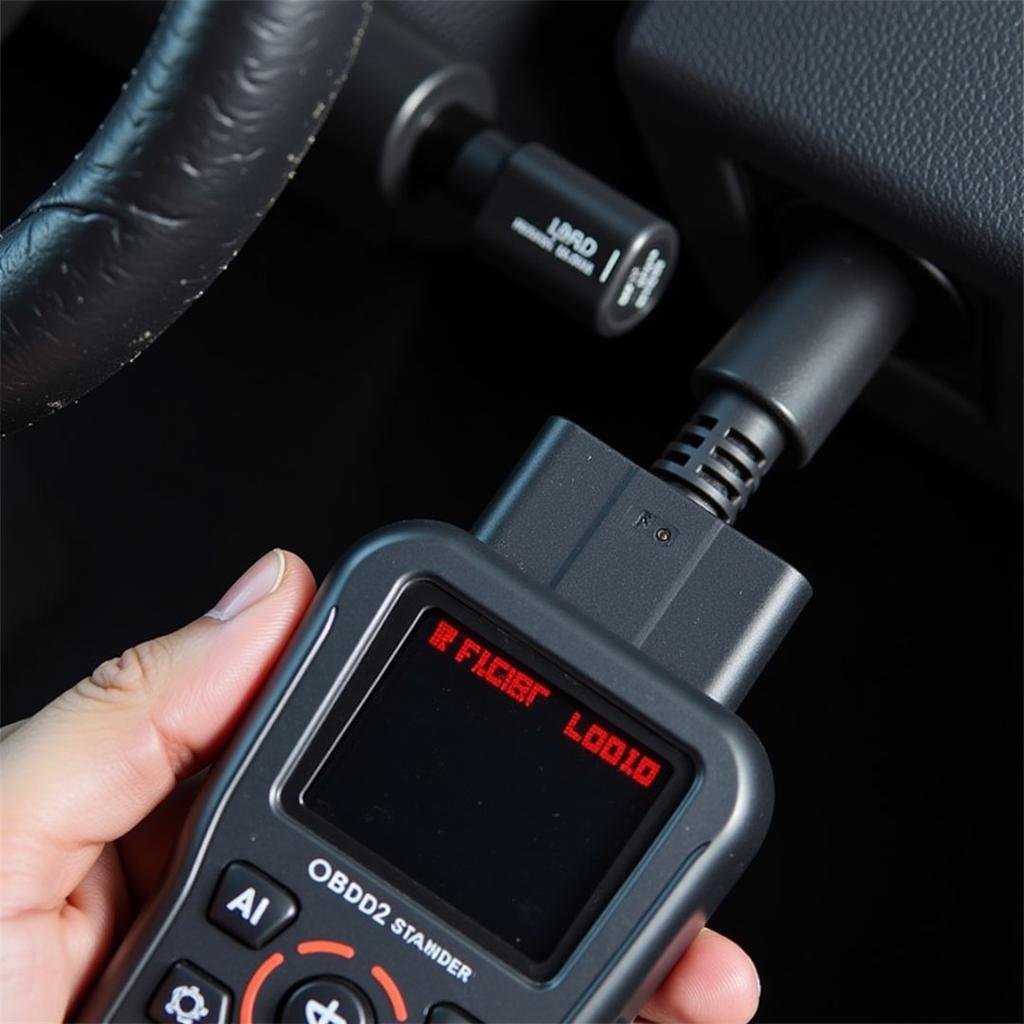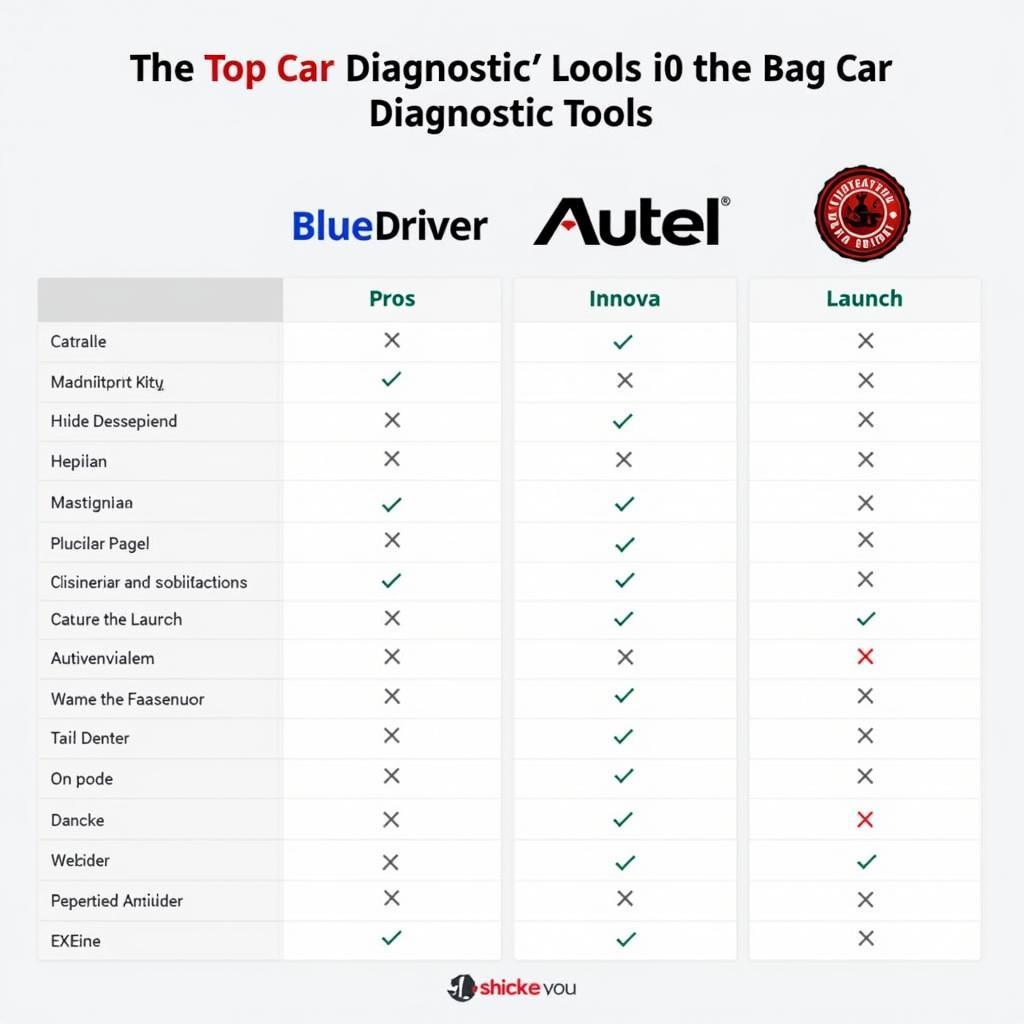Choosing the right car diagnostic tool can be overwhelming with so many options available. Whether you’re a seasoned mechanic or a car enthusiast looking to DIY, this comprehensive guide will equip you with the knowledge to make an informed decision. We’ll delve into the Best Car Diagnostic Tool Reviews, exploring their features, pros, and cons. Let’s dive in!
Why You Need a Car Diagnostic Tool
A car diagnostic tool is essential for anyone who wants to understand and potentially fix their own vehicle. These tools can read and interpret your car’s computer, giving you valuable insights into:
- Check Engine Light: Decipher those cryptic dashboard warnings and identify the root cause.
- Live Data Stream: Monitor your car’s performance in real-time, such as engine RPM, coolant temperature, and oxygen sensor readings.
- Sensor Data: Access vital information from various sensors, helping you diagnose issues with fuel systems, emissions, and more.
- Troubleshooting: Pinpoint problems before they escalate, saving you time and money on costly repairs.
Types of Car Diagnostic Tools
Understanding the different types of car diagnostic tools will help you choose the best fit for your needs:
1. OBD2 Scanners:
These handheld devices are ideal for basic diagnostics, reading and clearing error codes, and viewing live data. They are affordable and user-friendly, making them perfect for beginners.
 OBD2 Scanner
OBD2 Scanner
2. Advanced Diagnostic Scanners:
For professional mechanics, these tools offer comprehensive functionality, including module coding, bi-directional controls, and advanced programming capabilities. They often come with extensive vehicle coverage and software updates.
3. Smartphone/Tablet-Based Scanners:
These tools connect to your mobile device via Bluetooth or WiFi, providing a convenient and portable solution. They offer a range of features, from basic code reading to advanced diagnostics, depending on the app and subscription plan.
Key Features to Consider
When comparing car diagnostic tool reviews, keep these essential features in mind:
- Vehicle Coverage: Ensure the tool supports your car’s make, model, and year.
- Code Reading & Clearing: Look for a tool that can read and clear both generic and manufacturer-specific codes.
- Live Data Stream: This feature allows you to monitor real-time sensor data, aiding in diagnosis.
- Bi-Directional Controls: This advanced feature enables you to activate components like fuel injectors or ABS solenoids for testing purposes.
- Software Updates: Regular updates ensure compatibility with the latest vehicle models and features.
- User Interface & Ease of Use: Choose a tool with an intuitive interface and easy-to-understand menus.
- Durability and Portability: Consider the tool’s build quality and portability, especially if you’ll be using it frequently.
Top Car Diagnostic Tool Reviews
Here’s a rundown of some of the top-rated car diagnostic tools on the market:
1. BlueDriver Professional OBD2 Scanner: This Bluetooth scanner offers exceptional value, providing comprehensive diagnostics, live data, and repair reports directly to your smartphone. It’s a great option for both DIYers and professionals.
2. Autel MaxiCOM MK808: A powerful and versatile scanner, the MaxiCOM MK808 boasts extensive vehicle coverage, advanced coding capabilities, and a user-friendly touchscreen interface.
3. Innova CarScan Pro 5610: This scanner excels in providing clear and concise diagnostic information, making it perfect for beginners. It offers live data, ABS brake bleeding, and battery/alternator testing.
4. Launch CRP129X: This scanner stands out with its fast diagnostics, wide vehicle coverage, and special reset functions. It also features a built-in battery, making it ideal for mobile mechanics.
5. FIXD OBD2 Professional: Combining affordability with user-friendliness, the FIXD scanner offers basic diagnostics, code definitions, and maintenance reminders through a sleek smartphone app.
 Car Diagnostic Tools Comparison Chart
Car Diagnostic Tools Comparison Chart
Choosing the Right Tool for You
The best car diagnostic tool for you ultimately depends on your specific needs and budget:
- DIY Enthusiasts: For occasional use and basic diagnostics, an OBD2 scanner or a smartphone-based option provides excellent value.
- Home Mechanics: Consider a more advanced scanner with bi-directional controls and additional features for greater diagnostic power.
- Professional Mechanics: Investing in a high-end scanner with comprehensive coverage and advanced programming capabilities is essential for professional-grade diagnostics and repairs.
Conclusion
Navigating the world of car diagnostic tool reviews doesn’t have to be daunting. By understanding the different types, features, and top-rated options, you can find the perfect tool to empower your automotive endeavors. Whether you’re a DIY enthusiast or a seasoned mechanic, having the right diagnostic tool at your disposal can save you time, money, and frustration.

Leave a Reply